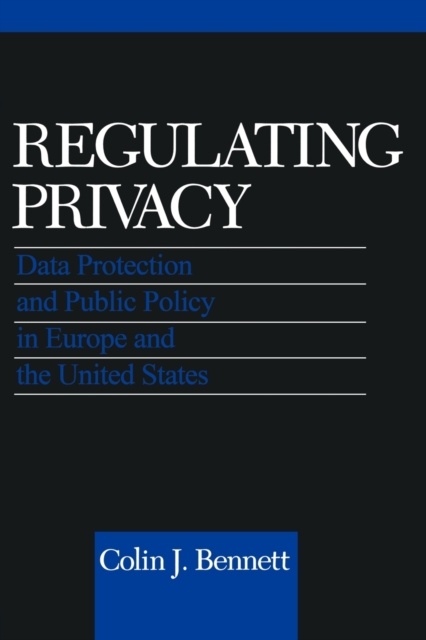Regulating Privacy: Data Protection and Public Policy in Europe and the United States

Regulating Privacy: Data Protection and Public Policy in Europe and the United States
The information revolution has brought with it the technology for easily collecting personal information about individuals, a facility that inherently threatens personal privacy. Colin J. Bennett here examines political responses to the data protection issue in four Western democracies, comparing legislation that the United States, Britain, West Germany, and Sweden forged from the late 1960's to the 1980's to protect citizens from unwanted computer dissemination of personal information.
Drawing on an extensive body of interviews and documentary evidence, Bennett considers how the four countries, each with different cultural traditions and institutions, formulated fair information policy. He finds that their computer regulatory laws are based on strikingly similar statutory principles, but that enforcement of these principles varies considerably: the United States relies on citizen initiative and judicial enforcement; Britain uses a registration system; Germany has installed an ombudsman; and Sweden employs a licensing system. Tracing the impact of key social, political, and technological factors on the ways different political systems have controlled the collection and communication of information, Bennett also deepens our understanding of policymaking theory.
Regulating Privacy will be welcomed by political sciences--especially those working in comparative public policy, American politics, organization theory, and technology and politics--political economists, information systems analysts, and others concerned with issues of privacy.
PRP: 309.69 Lei
Acesta este Prețul Recomandat de Producător. Prețul de vânzare al produsului este afișat mai jos.
247.75Lei
247.75Lei
309.69 LeiLivrare in 2-4 saptamani
Descrierea produsului
The information revolution has brought with it the technology for easily collecting personal information about individuals, a facility that inherently threatens personal privacy. Colin J. Bennett here examines political responses to the data protection issue in four Western democracies, comparing legislation that the United States, Britain, West Germany, and Sweden forged from the late 1960's to the 1980's to protect citizens from unwanted computer dissemination of personal information.
Drawing on an extensive body of interviews and documentary evidence, Bennett considers how the four countries, each with different cultural traditions and institutions, formulated fair information policy. He finds that their computer regulatory laws are based on strikingly similar statutory principles, but that enforcement of these principles varies considerably: the United States relies on citizen initiative and judicial enforcement; Britain uses a registration system; Germany has installed an ombudsman; and Sweden employs a licensing system. Tracing the impact of key social, political, and technological factors on the ways different political systems have controlled the collection and communication of information, Bennett also deepens our understanding of policymaking theory.
Regulating Privacy will be welcomed by political sciences--especially those working in comparative public policy, American politics, organization theory, and technology and politics--political economists, information systems analysts, and others concerned with issues of privacy.
Detaliile produsului









